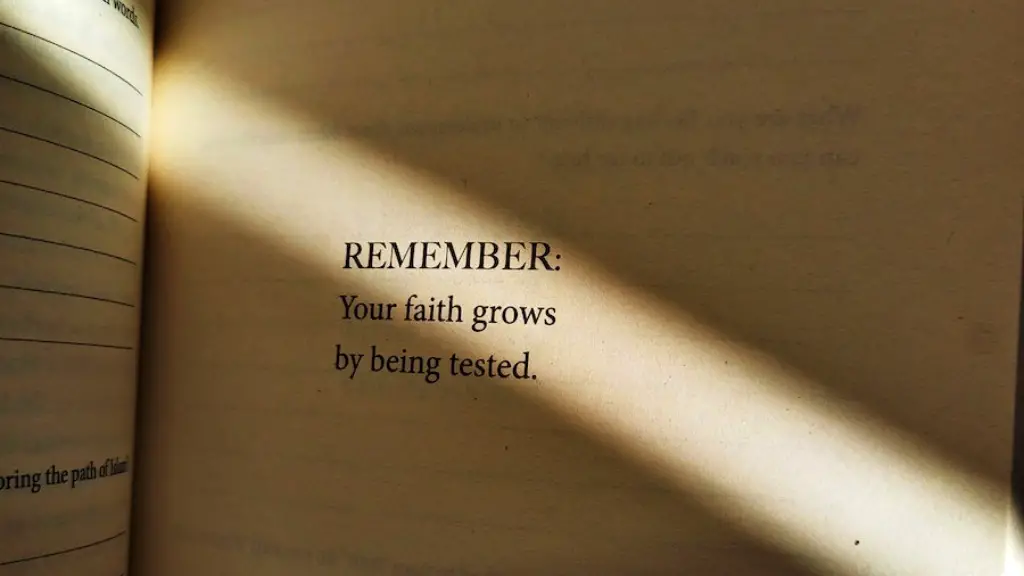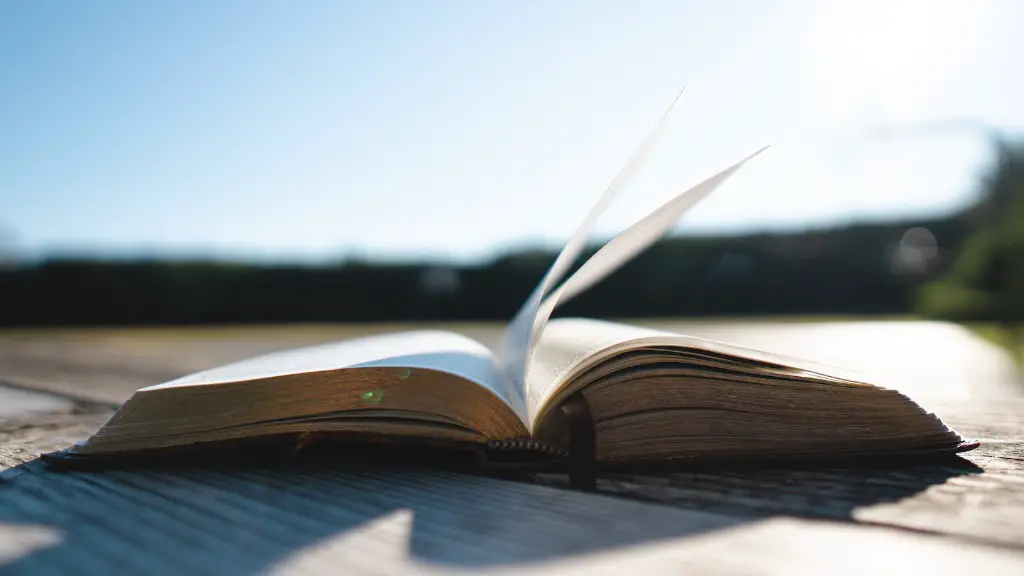Religious and Cultural Influences
Walt Whitman was an American poet and journalist who has been seen as one of the most important figures of the modernist movement. His works have been highly influential in popular culture and have been celebrated by critics alike. As with many writers, Whitman’s works were shaped by the beliefs and environments he was exposed to throughout his life. Two dominant factors influencing his works are religious and cultural influences.
Whitman was raised in a Quaker home and had a strong influence from the religion, something that he would later draw on heavily in his works. Quakers, or the Society of Friends, believed strongly in a connection between the divine and the physical world and this resonates through some of Whitman’s poetry. A great example of this is in his poem ‘A Song of Myself’, which has been regarded as the poem that encapsulates Whitman’s life’s work. In the poem, he articulates his belief in how people can be connected to a higher power and how this is capable of creating ultimate peace and unity.
Unlike many other figures of the modernist period, Whitman was also heavily influenced by his cultural environment. He grew up outside of New York City and was exposed to a diverse range of people and ideas. He wanted to capture in his works the variety of experience he found in the world and believed that it was possible to experience universality within these experiences. ‘I Hear America Singing’ is an example of this. The poem celebrates the diversity of the different occupations of his neighbours, and how by looking at each individual’s labor, Whitman was able to express something universal about the collective identity of America.
Inspirations for His Works
In addition to religious and cultural influences, Whitman was also inspired by other writers and poets of his time. One of the most significant influences was Ralph Waldo Emerson, an American writer, philosopher, and public figure. Emerson’s transcendental philosophy inspired Whitman’s views on individualism and how each individual should explore their own beliefs. Whitman was heavily influenced by Emerson’s view of the ideal self, something which later shines through in his poem ‘Song of the Open Road’.
Whitman also drew influence from the works of the English poet Lord Byron, particularly his own epics Don Juan and Childe Harold’s Pilgrimage, both of which Whitman read at a young age. During his time in New Orleans, Whitman was heavily inspired by the works of local writers and even considered writing a biography of Henry Clay, an important American politician of the time, in addition to working on his poetry. In addition to this, Whitman also drew on his own experiences, such as his travels, for inspiration for his writing.
Experiences During the Civil War
One of the most influential events in Whitman’s life was the American Civil War. The war had a huge impact on Whitman and it was during this time that he wrote some of his most well-known works. During the war, Whitman worked as a nurse, caring for the wounded soldiers and seeing first-hand the effects of the war on individuals. His experiences as a nurse had a lasting impact on him and many of his works after the war, such as ‘Dirge for Two Veterans’, seeks to commemorate the fallen soldiers.
The Civil War was also a key time in Whitman’s life in terms of his writing. During this time, he wrote some of his more famous works such as ‘When Lilacs Last in the Dooryard Bloom’d’ and ‘O Captain! My Captain!’ In both of these poems, Whitman expresses his grief at the death of Abraham Lincoln, something that he felt personally due to his admiration of the president.
Impact on Modern Poetry
The influence of Walt Whitman on modern poetry can’t be underestimated. He revolutionised the way modern poetry was written, introducing freer ideas and more open forms of verse. His works were highly influential in the way poets wrote about nature and the human experience, something that can still be seen in the works of modern day poets. Whitman also wrote about controversial topics such as death, love, and politics and his works were ahead of their time as he wrote about topics that were considered taboo for the time.
Perhaps one of the most lasting legacies of Whitman’s work is his celebration of individuality and self-expression, something that has come to shape modern poetry and culture. He believed that people should explore their own individual beliefs and thoughts, something he explored in his works and something that has become an integral part of modern poetry.
Legacy Today
Whitman’s influence still resonates today, with his works still being studied in academic institutions and taught in schools around the world. His works have been translated into many different languages and can be found in countries all around the world. Whitman’s oft-quoted phrase ‘I contain multitudes’ has become a popular catchphrase and is seen as an embodiment of the modern desire for self-expression and exploration of individual identity.
Whitman’s works have been highly influential in popular culture, inspiring writers and artists for generations. For example, Bob Dylan was heavily inspired by Whitman’s poem ‘Vigil Strange I Kept On The Field One Night’, adapting the poem for his own iconic protest song ‘Blowin’ in the Wind’. This is just one example of how Whitman’s works have had a lasting influence. To this day, Whitman is still seen as one of the most important figures of modern poetry and his influence can still be seen in the works of contemporary poets.
Influence on Other Writers
The influence of Walt Whitman on the writing of other authors is undeniable. His works have had an impact on writers around the world, from Latin American writers such as Octavio Paz to African American writers such as Richard Wright. Writers from all genres have drawn on Whitman’s works, from novelists such as F. Scott Fitzgerald and Ernest Hemingway to poets such as T.S. Eliot.
In particular, Whitman’s influence can be seen in contemporary experimental poetry, with writers such as Susan Howe and John Ashbery drawing heavily on the free association techniques used by Whitman. Whitman’s influence in this area helped to open up the possibilities of what could be explored in poetry, pushing boundaries and exploring new ways of expression in the form.
Conclusion of His Influence on Music
Whitman’s influence can also be seen in music, from Joni Mitchell’s rendering of ‘A Song of Myself’ to Paul Simon’s use of Whitman’s verse in his song ‘American Tune’. The influence of Whitman’s works has been felt in the music of many genres, from folk to rock and roll to hip-hop. His unique and powerful perspectives infused in his works can be seen in the musical works of many different artists.
In conclusion, the influence of Walt Whitman on modern culture and literature cannot be understated. His works have been celebrated around the world and have helped to shape the way literature and music have been created since his time. His works provided comfort in times of tragedy and his views on the human experience have had a profound impact on generations of people.



